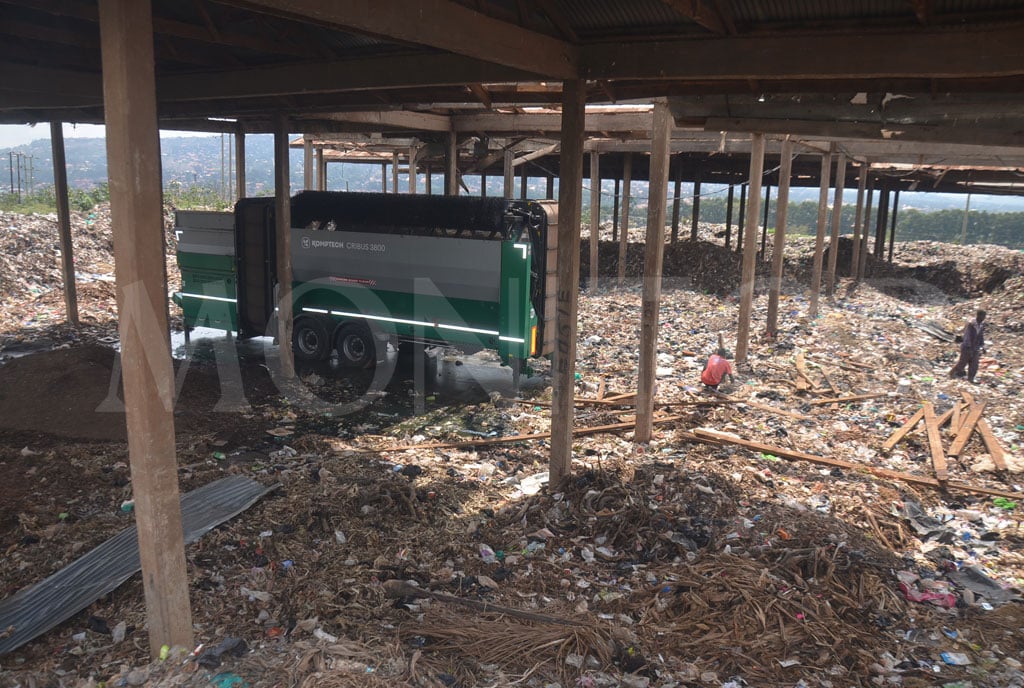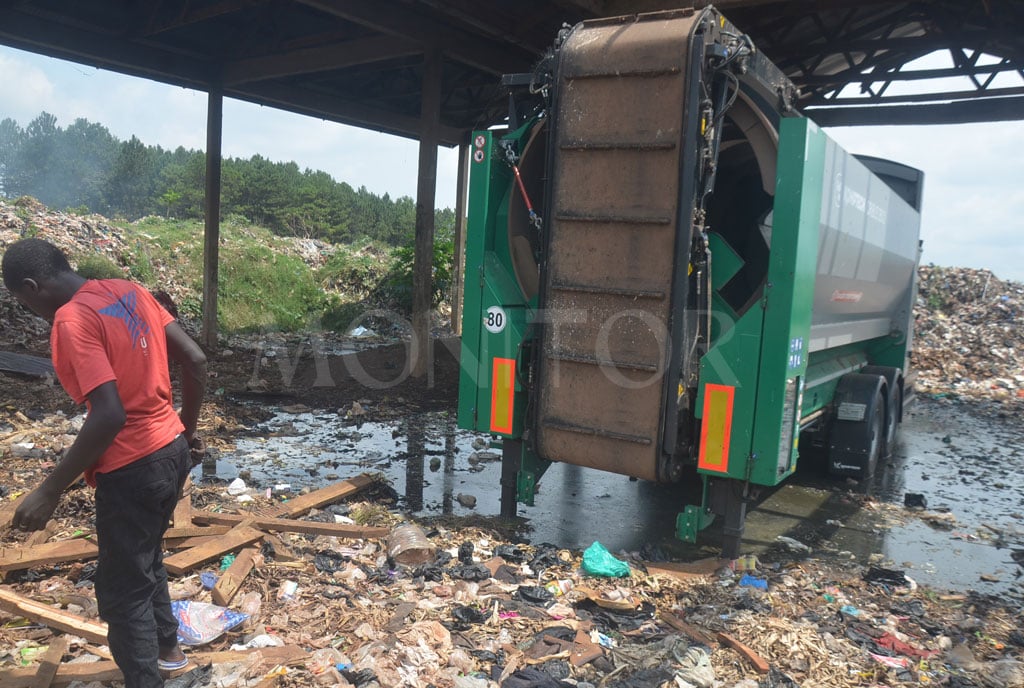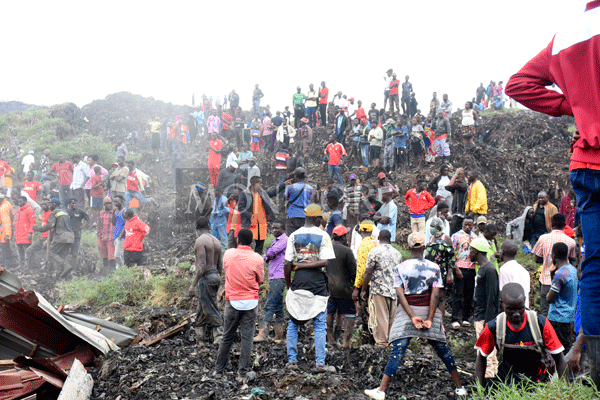
This photo taken on August 18, 2024 shows a general view of a garbage recycling machine at the Masese dumpsite or landfill in Jinja City. PHOTO/TAUSI NAKATO
A Shs1.5b garbage recycling plant lies idle in Masese II Danida Cell, Jinja Southern Division in Jinja City, five months after it was commissioned.
The trommel machine (komptech cribus 3800) was launched in March to turn garbage into manure, with initial capacity to sieve up to 50 tons of waste every hour.
Because it was also aimed at sorting and separating different types of garbage such as plastics, paper, glass and metals plus reducing landfill waste, Masese landfill in Jinja Southern Division was its ideal destination.
However, Monitor visited the landfill at the weekend and found the machine idle with heaps of garbage and stagnant dirty water and its rooftop blown off, exposing it to rain.
Ms Eunice Akwende, a resident staying near the landfill, has asked authorities to operationalise the machine to reduce garbage.
“All sorts of items like glasses, fetuses, and diapers, among others, are dumped near our doorstep while the stench from decomposing garbage attracts flies; the place is full and our children risk getting diseases like cholera,’’ she said at the weekend.
Ms Robina Atwanyi, also a resident, said her children are allegedly suffering from malaria because the garbage offers a breeding ground for mosquitoes.
The landfill is currently surrounded by close to 100 families and schools, including Masese Co Education Primary School, Jinja Ophthalmic Clinic Officers training School and Kampala University Jinja Campus, among others.
Jinja City senior environment officer, Mr Ernest Nabihamba, attributed the failure to operationalise the machine to lack of a wheel loader to feed the machine, adding that the only available one is no longer functional.
“Jinja City also lacks fuel and also doesn’t have the funds to purchase it (fuel). We are waiting for funds from the European Union to facilitate the operationalisation of the machine,” Mr Nabihamba said.
He added that they also need $15m (about Shs55.3b) to invest in the biogas plant to be able to generate electricity from the garbage heaps at Masese landfill.
Mr Nabihamba explained: “If the garbage recycling plant is working and the government gives us money for the biogas plant, we can generate 2.8 megawatts of electricity. The Ministry of Energy is currently convincing the government to invest in a biogas plant.”
Jinja City’s Public Relations Officer, Mr Rajab Kitto, in an earlier interview with this publication, said garbage management in the City is currently under the polluter pay system.
“The road that goes to the landfill is marram and deteriorated; so, when it rains, for trucks to access the landfill is very difficult, over the past days we have had problems because it is raining heavily and garbage accumulated around central market, but we have now addressed the issue,” Mr Kitto said in March last year.
According to him, the city has a 12-acre landfill, but due to the amount of garbage generated, it is not enough.

This photo taken on August 18, 2024 shows a man near a garbage recycling machine at the Masese dumpsite or landfill in Jinja City. PHOTO/TAUSI NAKATO
Residents are concerned that rubbish continuously accumulated at the site could trigger deadly disaster.
Their concerns come barely two weeks after a mountain of garbage collapsed in Kiteezi, a Kampala suburb, killing at least 35 people, injuring scores, while at least 28 others are still missing.
Mr Wilberforce Okware, the chairperson Masese II Danida Cell in Jinja Southern Division where the Jinja landfill is located, asked authorities to relocate the dumpsite if they can’t recycle the garbage.
“What happened at Kiteezi landfill in Kampala can happen to us anytime because garbage is dumped anywhere; when it rains, water floods. The landfill should be relocated because it is currently in the middle of the city,” Mr Okware said.
Background
In July, 2009, the National Environment Management Authority (Nema), with funding from the World Bank, launched a manure project manufacturing site in Masese, Jinja South Division, which was abandoned by the then leadership of the defunct Jinja Municipality.
Later, the Ministry of Energy and Mineral Development, through the Nationally Appropriate Action on Integrated Waste Management and Bio Gas Production (NAMA) project, donated the Shs1.5b garbage recycling plant to Jinja City.
This followed a Ministry of Energy and Mineral Development survey conducted between 2021 and 2022, which revealed that an estimated 182.6 tons of solid waste was being generated in Jinja City every day.
The survey also indicated that 8,041 metric tons of wastewater is generated by households, institutions, industries and commercial enterprises in Jinja City’s central business area daily.
This project is funded by the Global Environment Facility and United Nations Development Programme (UNDP), with the Ministry of Energy and Mineral Development as the implementing partner.





